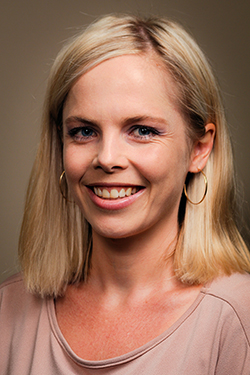Given the high prevalence of social problems in South Africa social workers are often placed at risk for depression, burnout, and exceptionally high stress levels, due to adverse working conditions. The latter refers to being confronted by violence and abuse, a lack of respect from a large cohort of society and working in unfavourable contexts – often characterised by meagre salaries, a dire shortage of resources and facing legal challenges whilst executing their duties.
One group of social workers that are particular at risk for negative health outcomes due to exposure to adverse working conditions is child protection social workers (CPSW). They are also known as statutory social workers, field workers and designated social workers.
Dr Elmien Truter and Prof Ansie Fouché, both lecturers in the Faculty of Health Sciences at the North-West University’s (NWU’s) campus in Vanderbijlpark, are conducting impactful research on not only the risks social workers in the child protection setting are exposed to, but also how many of these professionals manage to adapt positively despite prolonged exposure to these risks.
The duos research – as conducted within the Optentia research focus area – has yielded great insight into the profession and seeks to answer two main questions: What factors place CPSW at risk? How do CPSW adjust to these risks?
Their research findings
From an analysis of their research data – as collected over three rounds of inquiry – it is clear that CPSW in Gauteng are placed at risk by several factors that emerge from several sources. These include not earning enough money to be able to look after themselves, often leaving social workers with a personal risk of not being able to afford to live in safe and good areas, and often residing in similar towns or complexes as their clients.
Social workers who mostly do not earn enough money are those employed by non-government organisations, leaving them insecure in terms of being able to pay for necessary bills and being able to take care of themselves, despite the expectation from society and other professionals that these social workers should always ‘look the part’.
Child protection social workers are more at risk for the previously mentioned negative outcomes due to the very stressful nature of their statutory involvement in supporting children and families. Such statutory duties involve removing children from abusive households and going to court to formalise and legalise the protection of children.
Most of the time these professionals have caseloads of anything between 100 and 300 cases, with the immense administrative pressure amalgamated by having to make critical decisions about the safety and wellbeing of children, under the threating observation of attorneys representing alleged abusers and families or community members ready to attack the decision of the CPSW.
Amidst this stressful situation, CPSW often do not have enough petrol for their vehicles or enough ink to print a report, yet the heat is on to deliver and deliver on time.
Some of these social workers explained to the experts how influences from the political arena have a detrimental impact on their ability to focus on protecting children. This is done by means of ever increasing administrative demands and instructions to focus on different areas of service delivery depending on the political agenda of the ruling party at any given time. This administrative pressure often leads to staff not reaching the abused child at home or not being able to see the woman subjected to domestic violence because of important paper work that must be submitted to the authorities without delay.
Research that impacts the profession
From the various interviews, the experts discovered that child protection social workers’ resilience are mostly informed by several innate personality traits or aspects such as being driven by a passion or calling to do the work of protecting children, having internal locus of control, a positive attitude, and an ability to celebrate victories. Other traits include making time for leisure activities and taking care of themselves, having solid boundaries that they respect themselves, emotional regulation and being able to laugh about the many distressing realities they face.
Their resilience is, however, also greatly informed by religion and participating in faith related activities such as prayer groups; and constructive relationships with people who help them to find a balance in life and support them during the darkest times of executing their statutory duties also played a chief role in their ability to adjust to work place adversity.
These positive relationships give CPSW an opportunity to escape realities such as child abuse, an opportunity to breathe and rest. These relationships help CPSW to focus on other parts of life and help them reflect and realize that they do make a difference and that they are valued outside of the workplace.
Although social workers are sometimes only seen as ‘people with good intentions’ it is important to acknowledge that it is the profession where action meets compassion. These professionals are applying scientific methods in executing their duties and are mandated by a professional body, various legislation and the community at large to uphold high ethical values and morality.
It is often expected of them to perform miracles and although all social workers will be held accountable for their actions or a lack thereof by the South African Council of Social Service Professions, the reality in which they have to perform their duties is often unknown to the larger community who is dependent on them. Being aware of these realities help society to have compassion and empathy with CPSW.


Prof Ansie Fouche Dr Elmien Truter
